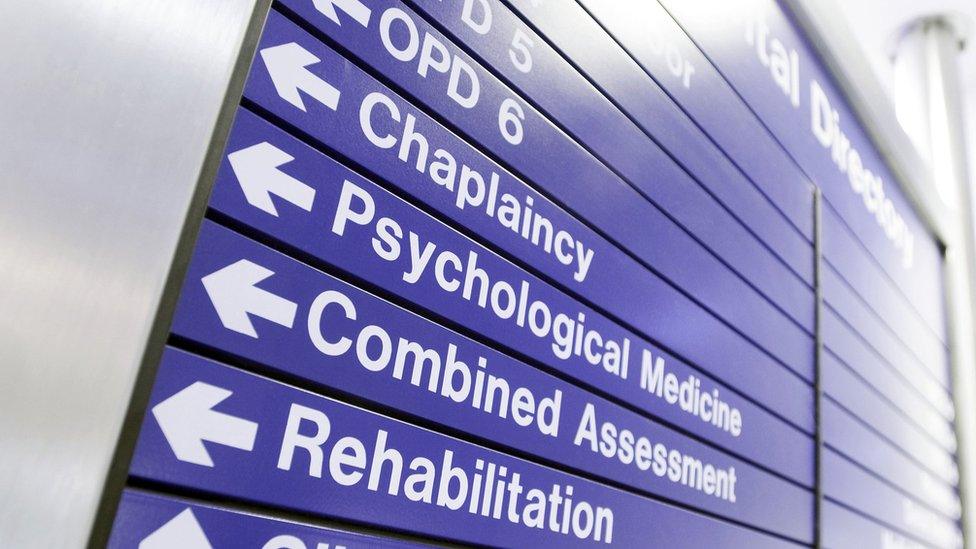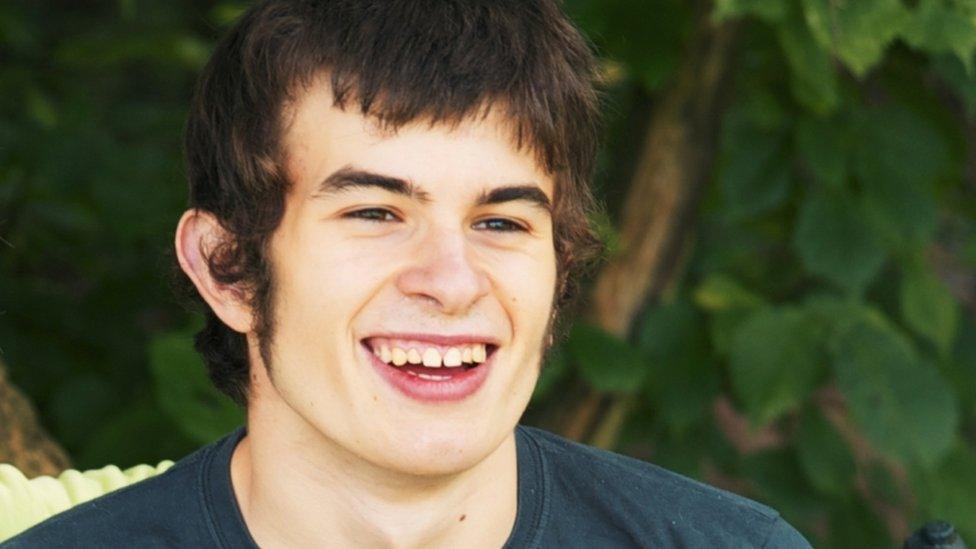Rise in serious incidents at English mental health trusts
- Published

More than 8,000 serious incidents were reported by mental health trusts in England last year - an increase of more than a third over a two-year period.
The figures, obtained under the Freedom of Information Act by the Liberal Democrats, include a rise in unexpected deaths and suicides.
The NHS logs events as "serious incidents" when the consequences for patients and staff are so significant they warrant investigations.
The NHS said transparency had improved.
Trusts are left to decide for themselves what constitutes a serious incident, working under guidelines from NHS England.
Apart from unexpected deaths, a serious incident investigation might also be triggered by events that could undermine public confidence in an organisation's ability to deliver acceptable healthcare services - such as security concerns or the misuse of information.
Lib Dem MP Norman Lamb: Underfunding of mental healthcare "amounts to discrimination"
The aim is to prevent future tragedies.
Emphasis on safety
The Freedom of Information data from NHS England shows there were 8,139 serious incidents recorded by the 58 mental health trusts in England in 2014-15.
This compares with 6,074 in 2012-13 and 7,345 in 2013-14.
Two trusts failed to provide full information for 2012-13. Taking account of this, there was an underlying increase of 31% over the whole period.
Of the serious incidents, there were 1,714 unexpected deaths in 2014-15, an underlying increase of 20%.
These death figures include 751 suicides - up 22% from 2012-13.

Connor Sparrowhawk, an 18-year-old with learning difficulties, drowned in a bath at a Southern Health building in Oxford in 2013
It is possible that a more open culture has encouraged a higher level of incident reporting - with a greater emphasis on safety since Mid Staffordshire NHS Trust was heavily criticised for failings of care that may have led to unnecessary deaths.
'Serious concerns'
But the Liberal Democrats say the figures generate further concerns about mental health services in England, following December's revelations about Southern Health.
The trust, which provides mental health services in the south of England, was found to have failed to investigate the unexpected deaths of hundreds of patients, many with mental health conditions and learning disabilities, since 2011.
The Liberal Democrat MP Norman Lamb, a former health minister in the coalition government, said: "These findings raise really serious concerns. I believe they should trigger a full investigation by the government and by NHS England.
"On the face of it, they show a dramatic rise in unexpected deaths and suicides - at a time when real terms funding provided by commissioning groups has gone down."
An NHS England spokesperson said: "Reporting of incidents is intentionally up right across the NHS, including mental health, as part of our national effort to encourage transparency and a culture of learning.
"That's the lesson from the airlines - openness is a precondition for safety and improvement. That's as true for mental health services as it is for maternity care or surgical operations."
Stephen Dalton, chief executive of the Mental Health Network, said: "We all need to make sure more people feel able to talk about mental health problems openly and get access to the support they need by reducing the stigma that surround mental illness."
- Published21 December 2015